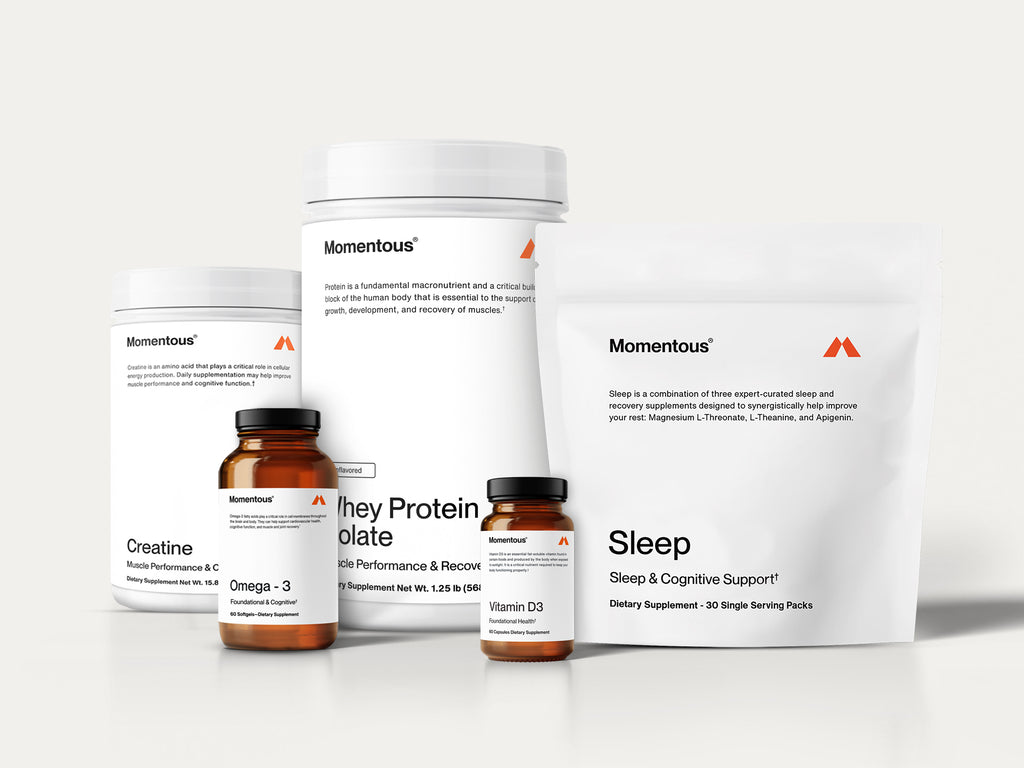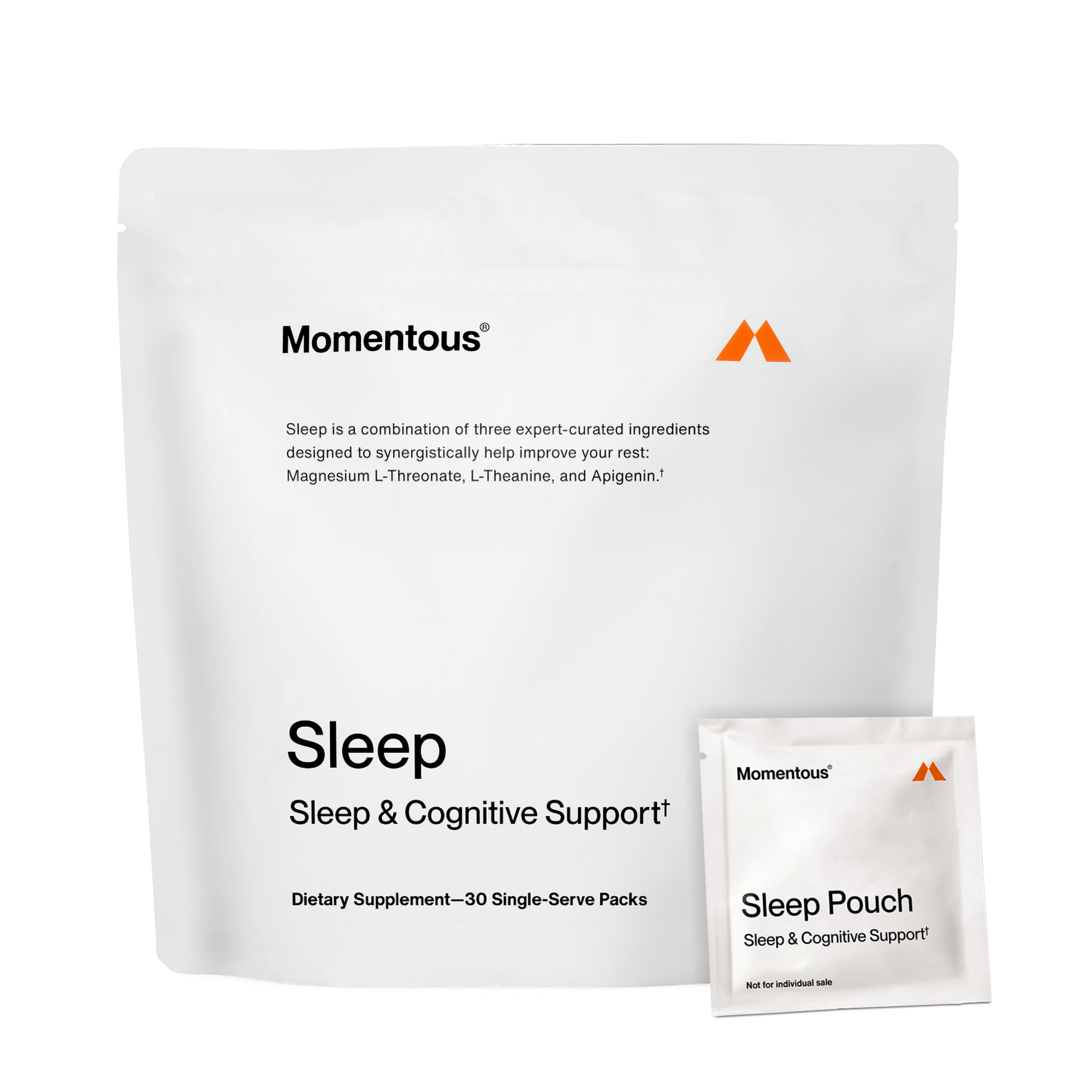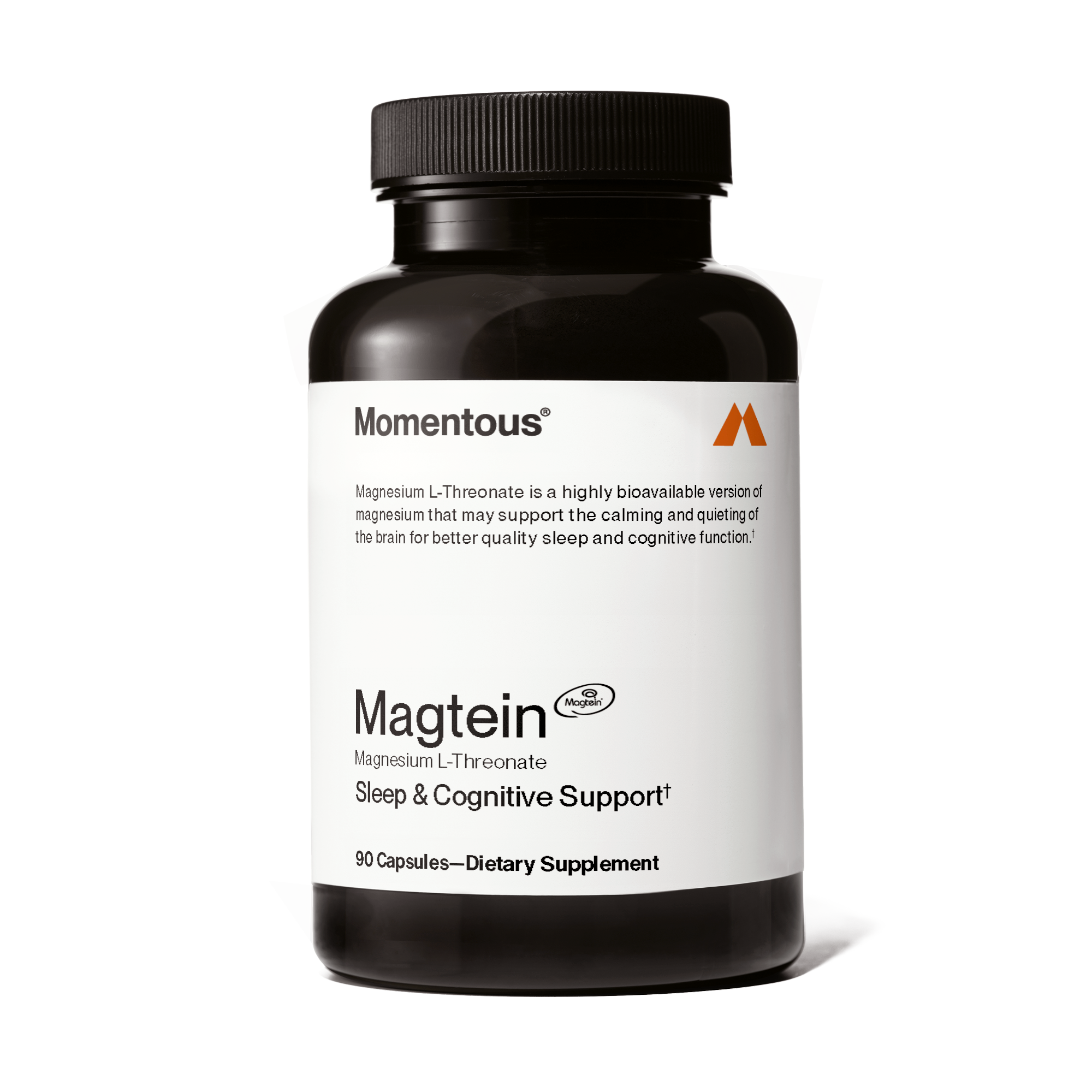A science-backed blend to help optimize your nightly rest
Sleep, Cognitive Function
Ceaseless yawns signal it’s time for bed, so we power down Netflix, draw our black-out curtains, crank up the sound machine, and curl up on the memory foam held firmly into place by the weight of our 10-lb blanket. We close our eyes for a restful night’s slumber, but within minutes, our eyes shoot back open, and we lay there for hours frustrated and willing the sleep to come.
DO MODERN SLEEP TOOLS WORK?
Sleep might be one of the most natural human practices, but for approximately one-third of the population, a good night’s rest can feel constantly elusive. From the day we are born, we test a variety of methods to find and maintain sleep. While our ancestors were avid practitioners of group sleeping and often shared their beds with five to 10 people, most modern humans are more selfish with their restful havens, leveraging tools like white noise and weighted blankets to stave off restless nights. Although we are armed with more sleep-inducing tools than ever before, approximately 60 million Americans are still plagued with a sleep disorder like insomnia, and studies show that women are twice as likely to suffer from sleep issues than the rest of the population.
WHY WOMEN ARE PRONE TO SLEEP DISORDERS
The hormonal fluctuation that occurs each month as part of our menstrual cycle is critical in preparing our bodies for pregnancy, but the oscillating levels of estrogen and progesterone throughout the different phases of our cycle (and our lives) leave us much more susceptible to sleep disruptions.
For younger populations, sleep is necessary for physical and cognitive growth, but as young women undergo puberty, they might find their once peaceful sleep patterns constantly interrupted by hormone fluctuations and menstrual cramps. While some women’s menstrual cramping gets better over time, others deal with the pain and secondary impacts to sleep long into adulthood.
As time goes on, the hormonal impact on women’s sleep worsens as we enter the menopausal transition and have to deal with symptoms like hot flashes and night sweats. While hot flashes can arise at any point throughout the day, nighttime hot flashes often yank us out of sleep multiple times a night. Furthermore, the loss of estrogen and progesterone during this timeframe can cause women to develop sleep apnea. According to Hopkins Medicine, postmenopausal women are two-to-three times more likely to have sleep apnea than premenopausal women.
WHAT HAPPENS WHEN WE DON’T GET THE SLEEP WE NEED
All humans know the difference between a good night’s sleep and one spent tossing and turning, but there are consequences beyond feeling extra drowsy the next day. Sleep is critical for brain plasticity, or our ability to adapt to input. When we don’t get enough sleep, we may struggle to process new information, retain new memories, or fight off colds and infections.
Louisa Nicola, Neurophysiologist and Billionaire Coach explores the necessity of sleep at length in her podcast, “The Neuro Experiment.” She also addresses how consistent lack of sleep can even alter our brains. She explains that the entire nervous system and its ability to manage emotions, fear, and stress relies on sleep optimization and that all this important work is carried out by our brains each night once we reach slow-wave deep sleep. The problem is that most people, particularly women, aren’t getting the deep sleep their brains and bodies need to complete physiological and cognitive repairs throughout the night.
For women, the struggle and need for sleep are compounded by hormonal fluctuations during different stages of life. While rapid increases and decreases in sex hormones can drastically alter sleep patterns, the reverse is also true. Sleep deprivation can also greatly impact hormone regulation, creating a vicious cycle of sleeplessness and hormonal imbalances.
SLEEP SOLUTIONS WE CAN TRUST
Fortunately, there are steps to take for better sleep during PMS, periods, pregnancy, menopause, and all the other stages of life in between.
- Food consumption. After you target your ideal time to fall asleep, avoid consuming food two hours before that time. Going to bed with an empty stomach helps prime your body for sleep.
- Lights. Avoid blue light from screens one hour before you intend to fall asleep. Take an extra step to dim the lights during this timeframe as well. Low-light lamps and candles are great sources of light when you’re an hour away from sleep.
- Core temperature. Studies show you’ll be able to reach deep-wave sleep more easily if you can keep your core temperature low. If possible, turn up the AC, crack the window, and sleep with lighter covers and clothes. Another great option is taking a hot shower before bed. The transition from the hot water to your bed will help cool down your system.
- Alcohol. Avoid drinking three hours before bed, or avoid it entirely when possible. Alcohol counteracts any steps you take to cool down your core temperature, disrupts deep sleep, and can jolt you awake periodically throughout the night.
- Stressors. Take the time to identify what causes you stress and try your best to avoid them at least an hour before bed. Whether it’s reading, watching a suspenseful show, checking your email, or browsing social media that causes you stress, try your best to avoid it. The best practice is to avoid anything mentally stimulating when you are priming your body for sleep.
Lastly, a natural, effective way to supplement this wind-down routine is with the Sleep Pack, the newest Momentous product that features natural ingredients like Magnesium L-Threonate, Apigenin, and L-Theanine, which work with your body’s natural sleep patterns to promote rest, relaxation, and stress relief and support the transition to sleep.
Pair the Sleep Pack with a strategic wind-down routine, and you’ll prepare your body for the deep sleep it needs to combat mental and physical stress, fend off illness, and regulate emotions. Women have enough things to worry about. Restful, reparative sleep shouldn’t be one of them.











